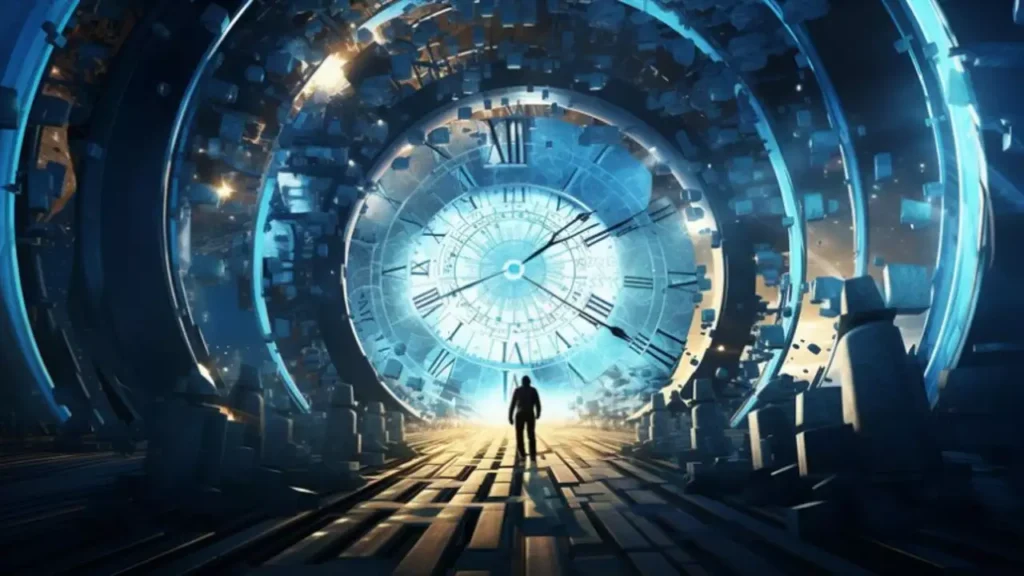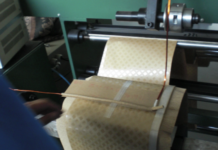Time travel has captivated humans’ imagination for centuries. From ancient myths to modern-day scientific debates, the concept continues to intrigue the world.

While it remains a topic of science fiction, advances in physics and our understanding of the universe suggest that time travel may not be entirely impossible. This blog will try to dive into the mysteries of time travel, explore the scientific theories behind it, and discuss the potential realities and paradoxes that accompany this mind-bending idea.
A Brief History of Time Travel in Culture
The concept of time travel is not new. Ancient myths from various cultures feature stories of individuals who traveled through time or experienced altered time flows. In Hindu mythology, the Mahabharata tells the story of King Kakudmi, who visits the creator god Brahma and returns to Earth to find that many ages have passed.
Modern time travel as a storytelling device emerged with H.G. Wells’ novel ‘The Time Machine’ (1895). This seminal work introduced the idea of a mechanical device capable of transporting a person through time. Since then, time travel has become a staple of science fiction, inspiring countless books, films, and television series—from ‘Doctor Who’ to ‘Back to the Future’, each exploring the endless possibilities and consequences of manipulating time.
Understanding Time: What Is It, Really?
Before diving into time travel, we must first understand what time is. In classical physics, time was considered absolute—a constant that flowed uniformly throughout the universe. However, Albert Einstein’s theory of relativity revolutionized our understanding of time by demonstrating that it is not fixed but relative and intertwined with space to form what we now call spacetime.
Einstein’s special theory of relativity (1905) revealed that time moves differently depending on speed and gravity. For example, someone traveling near the speed of light would experience time more slowly relative to someone on Earth—a phenomenon known as time dilation. This idea is not just theoretical; it has been confirmed by experiments with high-speed particles and atomic clocks on satellites.
Scientific Theories of Time Travel
While time travel remains speculative, several scientific theories suggest that it may be possible under specific conditions.
- Wormholes: Cosmic Tunnels Through Space and Time: Wormholes, also known as Einstein-Rosen bridges, are hypothetical tunnels in spacetime that could connect distant parts of the universe. If wormholes exist and could be stabilized, they might allow for travel between different points in space and time. However, creating or maintaining a wormhole would require exotic matter with negative energy—a substance that remains purely theoretical.
- Black Holes and Time Distortion: Black holes, with their immense gravitational pull, can warp spacetime to extreme degrees. Some scientists speculate that if one could navigate the edges of a rotating black hole (an ‘ergosphere’), it might be possible to travel back in time. However, the dangers of being crushed by gravity or trapped in the event horizon make this an impractical method.
- Cosmic Strings: The Fabric of the Universe: Cosmic strings are theoretical, narrow tubes of energy stretching across the cosmos. They are thought to have formed during the early moments after the Big Bang. If two cosmic strings came close enough, the intense gravitational forces could warp spacetime in a way that allows time loops—potentially enabling time travel.
- The Tipler Cylinder: Proposed by physicist Frank J. Tipler, this theory suggests that a massive, rotating cylinder of infinite length could twist spacetime around itself. If one were to follow a precise path around the cylinder, it might be possible to loop back through time. However, creating such a cylinder is far beyond our technological capabilities.
The Paradoxes of Time Travel
Time travel, especially to the past, presents several mind-bending paradoxes that challenge our understanding of cause and effect.
- The Grandfather Paradox
One of the most famous time travel paradoxes asks: What if you traveled back in time and prevented your grandfather from meeting your grandmother? If you succeeded, you would never be born—so how could you go back in time in the first place? This paradox raises questions about the consistency of events and whether the past can truly be changed.
- The Bootstrap Paradox
This paradox occurs when an object or information is sent back in time, creating a loop with no discernible origin. Imagine finding a book on advanced physics, learning from it, and then traveling back in time to give the book to its original author. Who wrote the book in the first place? This kind of causality loop defies conventional logic.
- The Butterfly Effect
Small changes in the past can lead to massive, unpredictable consequences in the future. This idea, popularized by chaos theory, suggests that even the tiniest action—like stepping on a butterfly—could alter the course of history. Time travelers would need to tread carefully to avoid unintended outcomes.
Could Time Travel Ever Be Possible?
While current scientific knowledge does not allow for practical time machines, research in quantum physics and general relativity keeps the possibility open. Some scientists believe that the quantum realm, where particles behave in strange and unpredictable ways, may hold the key to unlocking time travel.
Time Travel to the Future:
According to Einstein’s theory, traveling into the future is theoretically possible by moving at near-light speeds or experiencing intense gravitational fields. Astronauts aboard the International Space Station already experience time slightly slower than people on Earth, though the difference is minuscule.
Time Travel to the Past:
Traveling backward in time is far more challenging. Most scientific models suggest it would require phenomena like wormholes or negative energy—both of which remain hypothetical. Even if we could achieve it, the paradoxes and potential dangers make it a complex and uncertain endeavor.
As we continue to explore the cosmos and deepen our understanding of physics, who knows? Perhaps one day, the dream of traveling through time will move from the pages of science fiction to scientific reality. Until then, time travel continues to capture our imaginations—inviting us to dream, question, and wonder about the endless possibilities that time holds.



















